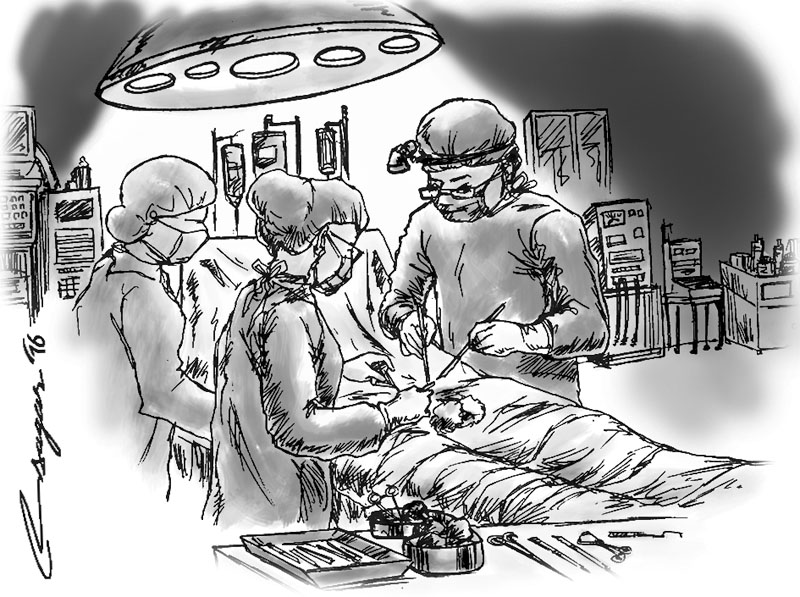Income generating plan for those who sold kidneys
Kavre, September 29
District Livestock Office of Kavre is preparing to launch an income-generating programme for individuals in Hokse who have sold their kidneys due to poverty.
The programme titled Samriddhika Lagi Pashupalan (Animal Husbandry for Prosperity) was devised in the last fiscal. “As the economic condition of families who sold their kidneys is worsening, we hope the programme will help them generate income,” said Livestock Development Officer Raj Kumar Humagain.
According to him, as per the programme, we will ensure that these individuals have the means of earning. “We’ll provide them with goats and gradually as they reproduce, they will be able to sell the goat-kids. Similarly, we’ll also launch a coop improvement scheme,” he informed.
“As for now, we have allocated 137,000 rupees to buy goats, a few billy goats for reproduction, and to start work on coop improvement; we will invest further as we identify more families who have sold their kidneys,” he added.
In recent times however, the lives of kidney sellers and their families have taken a new direction. With the cultivation of rudrakshya — a plant whose fruits are used for religious purposes and which fetches good price in the market — in the locality, the villagers may yet be able to earn enough to lead decent lives.
The village reportedly supplies around 100 tonnes of rudrakshya beads to traders in the Pashupatinath temple area in Kathmandu.
Hokse is notorious for being the ‘Kidney Bank’ internationally, as it has the highest number of people selling their kidneys, as per an investigative report made public by People’s Rights Protection Forum.
The report states that some 300 persons, mostly women, from at least 10 village development committees of the district have sold their vital organs.
As sale of vital organs is prohibited in the country, the prospective kidney seller is cajoled by kidney smugglers to go to India where the kidney is removed and sold.
As per the law of the land, anyone involved in this illegal transaction will be liable to 10 years’ imprisonment and up to 5 lakh rupees in fine. Half of the fine amount thus collected from the trafficker is given to the victim as compensation.






